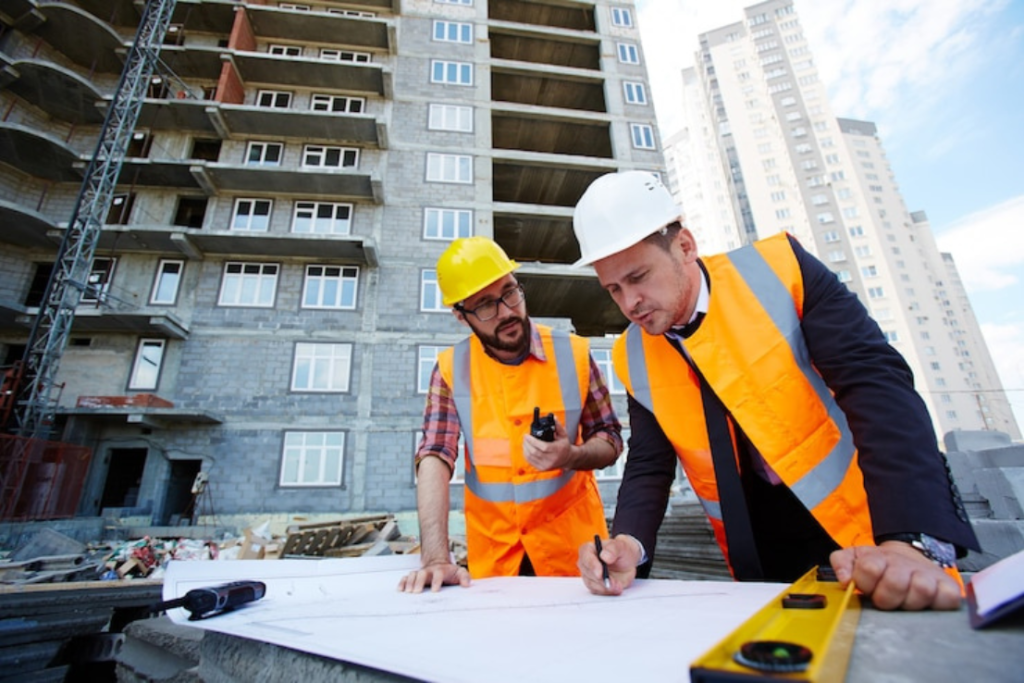The value of Third-Party Inspections in Funded Projects

Introduction
In civil engineering and infrastructure development, quality assurance and regulatory compliance are critical, especially when public funds or large-scale investments are involved. Whether it’s a national highway, an urban housing scheme, or a water supply network, third-party inspection services serve as a vital checkpoint for accountability. These independent consultancies act as neutral verifiers, ensuring that every stage of construction aligns with approved standards, technical specifications, and regulatory frameworks. Their involvement not only mitigates risk but also enhances transparency, improves quality, and strengthens the confidence of funding agencies and stakeholders alike. In this article, we explore the strategic value and far-reaching impact of third-party inspection consultancy services in civil infrastructure projects.
1. Ensuring Compliance with Standards and Regulations Space Utilization
One of the primary roles of Third-Party Inspections consultants is to verify that construction projects comply with local, national, and international standards. Building codes, safety regulations, and environmental laws are constantly evolving, making it challenging for contractors and developers to stay updated.
-> Quality Assurance: Inspectors ensure materials and workmanship meet required specifications.
-> Legal Compliance: They verify adherence to laws, preventing costly legal disputes.
-> Safety Standards: They identify potential hazards, ensuring worker and public safety.
Without third-party oversight, projects risk non-compliance, leading to fines, delays, or even demolition.
2. Enhancing Aesthetics & Visual Appeal
Quality is the backbone of any successful construction project. Poor-quality materials or substandard work can lead to structural failures, increased maintenance costs, and reputational damage. Third-party inspectors conduct rigorous quality checks at various stages:
-> Material Testing: Verifying the strength, durability, and suitability of construction materials.
-> Workmanship Evaluation: Ensuring proper installation techniques and craftsmanship.
-> Defect Identification: Detecting flaws early to avoid costly rework.
By maintaining high-quality standards, these consultants help deliver long-lasting, reliable structures.
3. Reducing Risks and Liabilities
Construction projects involve multiple stakeholders contractors, developers, investors, and government bodies. Any failure can lead to financial losses, legal battles, and reputational damage. Third-party inspection services mitigate risks by:
-> Identifying potential failures before they escalate.
-> Providing unbiased reports that hold all parties accountable.
-> Reducing insurance claims by ensuring safety protocols are followed.
This risk reduction translates into cost savings and smoother project execution.
4. Improving Project Efficiency and Timeliness
Delays in construction projects are common due to rework, regulatory hurdles, or poor planning. Third-party inspectors help streamline processes by:
-> Preventing rework through early defect detection.
-> Ensuring timely approvals by verifying compliance before inspections.
-> Optimizing resource use by avoiding material wastage.
Their involvement keeps projects on schedule and within budget.
5. Boosting Stakeholder Confidence
Investors, clients, and regulatory bodies need assurance that a project is being executed correctly. Third-party inspection reports serve as credible, unbiased proof of quality and compliance.
-> Investors gain confidence in the project’s viability.
-> Clients trust that their investment is secure.
-> Authorities are assured that regulations are met.
This transparency fosters trust and long-term business relationships.
6. Facilitating Dispute Resolution
Disputes in construction often arise over quality, delays, or contractual obligations. Third-party inspectors provide neutral, evidence-based assessments, helping resolve conflicts fairly.
-> Documentation: Detailed reports serve as legal evidence.
-> Mediation: Their expertise helps in arbitration and negotiations.
-> Fair Accountability: They ensure no single party is unfairly blamed.
This minimizes litigation and promotes smoother conflict resolution.
7. Supporting Sustainable Construction Practices
With growing emphasis on green building and sustainability, third-party inspectors ensure projects meet LEED, BREEAM, or other environmental standards.
-> Material Sustainability: Checking eco-friendly material usage.
-> Energy Efficiency: Verifying insulation, HVAC systems, and renewable energy integration.
-> Waste Management: Ensuring proper disposal and recycling practices.
Their role is crucial in promoting environmentally responsible construction.
Conclusion
Third-party inspection consultancy services are indispensable in modern civil engineering. From ensuring compliance and quality to reducing risks and boosting stakeholder trust, their impact is far-reaching. For developers, contractors, and investors, partnering with a reputable third-party inspection firm like Savjani A&E Consultants is not just an added cost it’s a strategic investment in project success. By maintaining high standards, preventing costly errors, and fostering transparency, these consultants play a vital role in shaping safe, durable, and efficient infrastructure.If you’re involved in construction, don’t overlook the value of third-party inspections. Savjani A&E Consultants could be the difference between a successful project and a costly failure.


